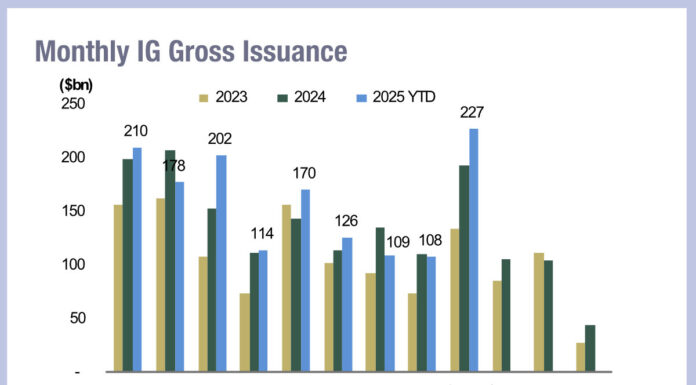In the Treasury Market Practices Group meeting on 14 February, the agenda included a review of the December 2021 white paper, ‘Operational Plans for Various Contingencies for Treasury Debt Payments’.
The US government will need to raise its debt ceiling in 2023 risk defaulting on its debt, which is currently being supported under extraordinary measures.
The potential under review practices are designed to support “the continued trading and transfer of securities that are subject to delayed payments. The potential practices rely on extending the operational maturity date in the Fedwire Securities Service and other systems to allow securities subject to delayed payments to continue to trade and be transferable.”
The operational extension has no impact on the legal maturity date. By extending the operational maturity date of securities subject to delayed payments, more liquid market functioning can be supported than if the securities were non-transferable in the Fedwire Securities Service.
To help preserve the transferability of securities for which payment cannot be made in a timely manner, the potential practices are:
• Prior to running the Fedwire Securities Service end-of-day process on the day before a principal payment is due, if the Treasury determines that a principal payment cannot be made the following day, the operational maturity date of the securities on trading, custodial, settlement, and transfer platforms would be extended, by one business day. This practice could be repeated each day until the principal payment is made. Once Treasury notifies the Reserve Banks that the principal payment will be made, the operational maturity date would no longer be extended in the Fedwire Securities Service, and the principal payment would be made on the last established operational maturity date. This eventual payment of principal would be made to the holder of record as of the close of business the day before the actual principal payment is made.
• If a coupon payment is delayed, the eventual payment of the coupon would be made to the holder of record as of the close of business the The Fedwire Securities Service has the capacity to operationally extend maturity dates day by day, if instructed to do so by the issuer before the start of end-of-day processing of the Fedwire Securities Service on the day prior to the maturity date. The Fedwire Securities Service can extend the operational maturity date for Treasury bills, principal payments on coupon-bearing instruments, and principal STRIPS. Interest STRIPS would not be extended and would be treated consistently with the associated coupon payment for a fully constituted note or bond, which would also not be extended, given a delay. Of note, the process of extending the operational maturity date would not change the maturity date specified in the terms and conditions of the Treasury Offering Circular—it would simply be intended to facilitate continued transferability in the affected securities. December 2021 TREASURY MARKET PRACTICES GROUP 3 day before the originally scheduled coupon payment date.
• Additionally, under these potential practices, the standard market conventions of quoting bills on a discount basis and notes and bonds on a “clean price” basis are expected to remain as viable market standards.
The asymmetric treatment of principal and coupon payments is preferable because of a number of operational issues faced by many large participants in the market, including clearing banks, utilities, and others. The proposed treatment of coupon payments would allow most systems to continue to track the proper settlement proceeds of trades with less manual intervention, as it is consistent with conventional calculations of accrued interest, overall settlement proceeds, etc. If the delayed coupon is on a maturing security, firms should confirm how their systems would handle the coupon accrual in the stub period beyond the originally scheduled maturity date. A delay in the payment of Treasury debt even under the potential practices would entail significant operational difficulties and require manual intervention for nearly all market participants. Moreover, from an operational perspective, these practices can only be accommodated by the Fedwire Securities Service if instructions to extend the operational maturity date are provided by the Treasury before the close of the Fedwire Securities Service on the day prior to a scheduled maturity. Of course, there may be circumstances under which notification on the required timeline would not be possible. If circumstances do not allow for timely notification of extending the operational maturity date, the affected issues would cease to be transferable over the Fedwire Securities Service. In cases where proceeds were committed to be lent or assumed to purchase other securities, market participants may need to consider securing other sources of funding. Market participants should recognize that how the Fedwire Securities Service will treat a delayed payment would be determined by the Treasury.
©Markets Media Europe 2025













